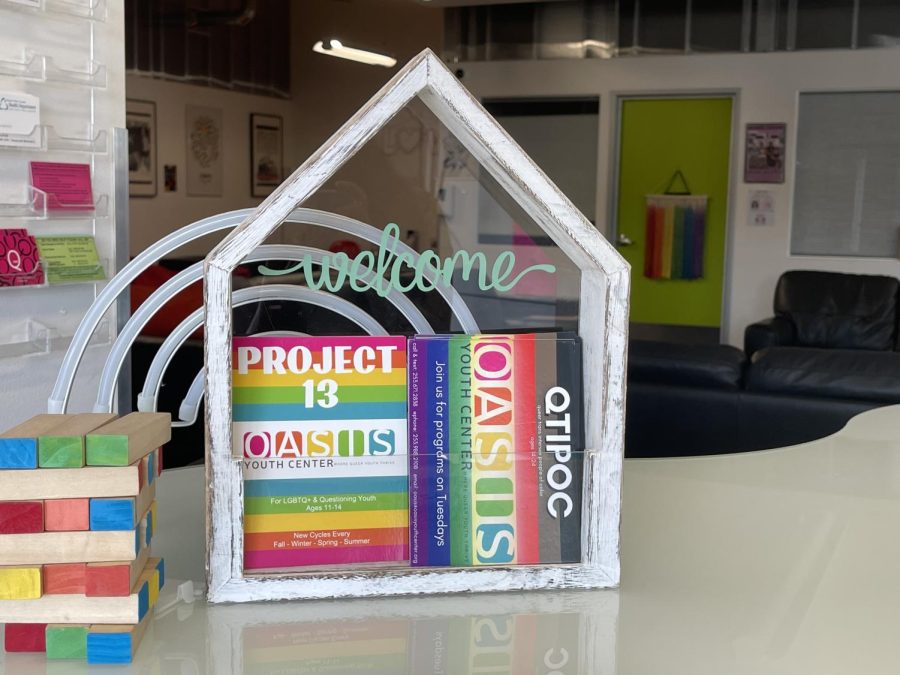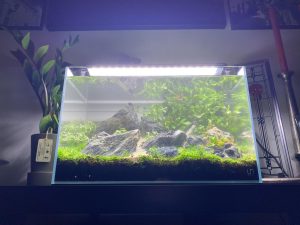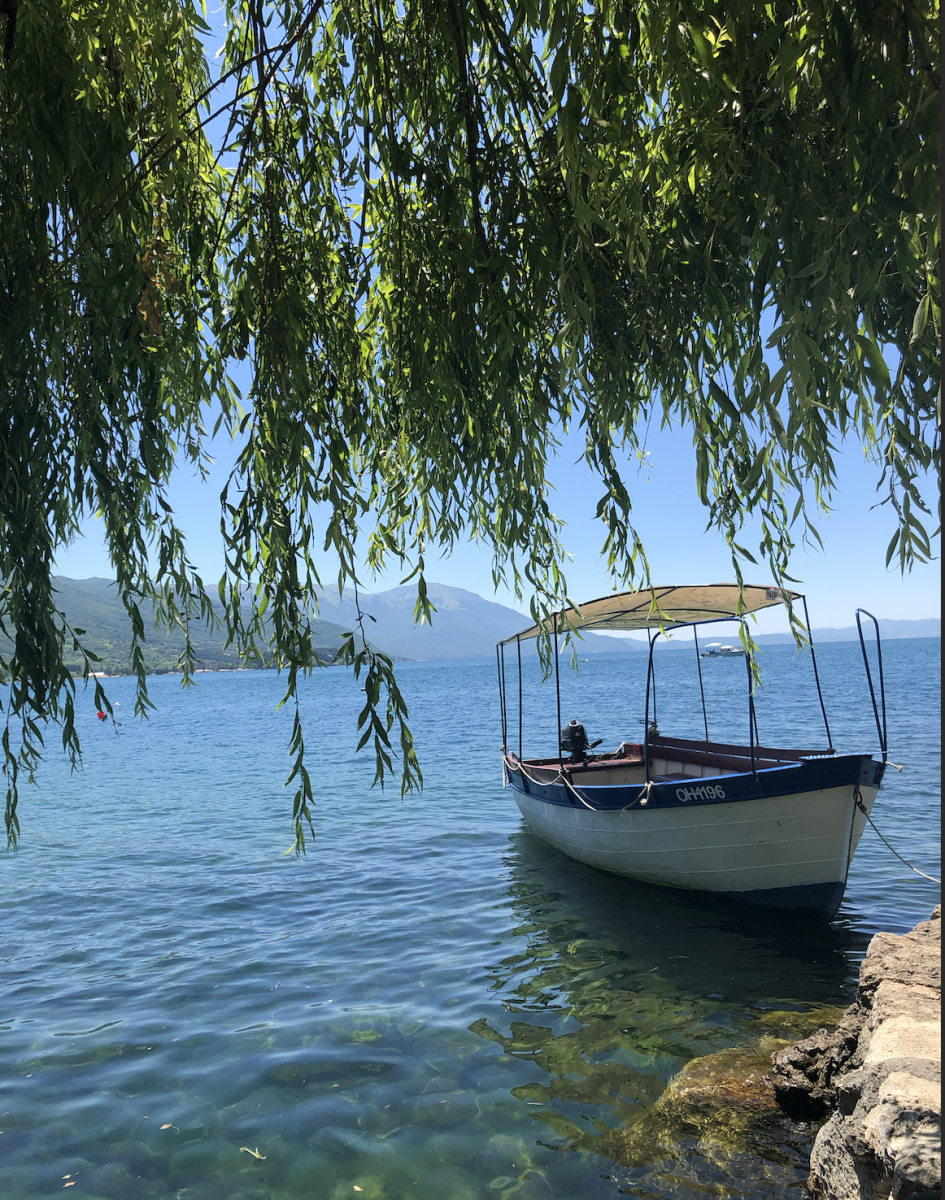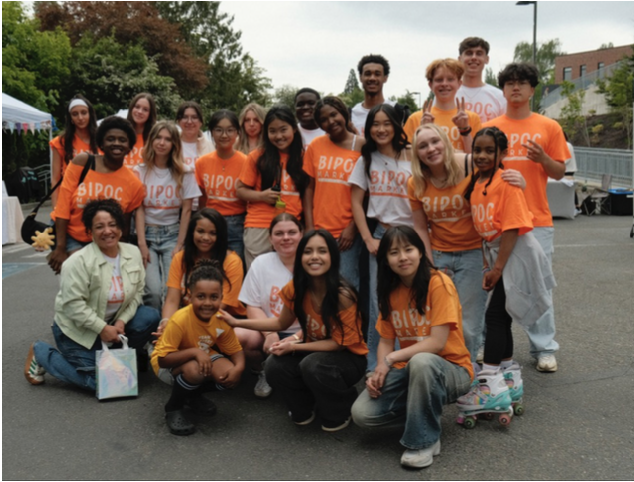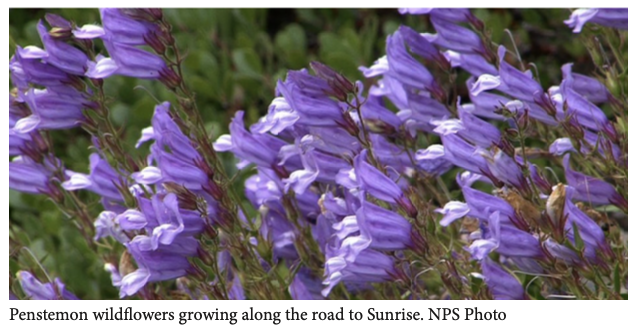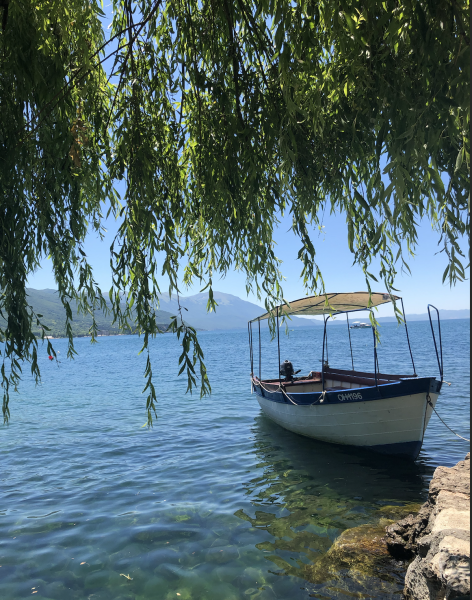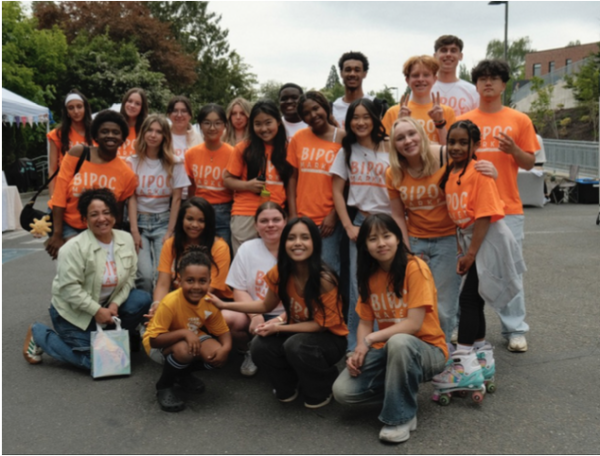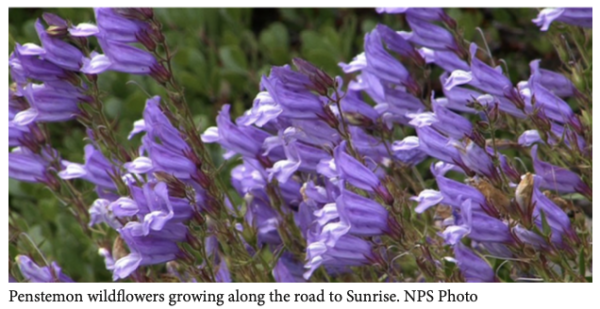Meet Oasis: Tacoma’s Foremost Queer Youth Center
photo courtesy of Sofia Guerra
Oasis Youth Center has a welcoming and dynamic atmosphere and is located in Tacoma.
October 20, 2022
Content warning: This article contains mentions of suicide and sexual violence.
342,000. That’s the number of queer individuals over the age of 13 in Washington state. 200%. That’s how much more likely queer youth are to struggle with mental illness, feelings of anxiety or depression than their cisgender and heterosexual counterparts. Queer youth are considered an at-risk group for a number of reasons: higher rates of homelessness, bullying, medical discrimination and more. Thus, it is critical that queer youth are able to have access to the support and resources they need in order to thrive and grow. City, state and country-wide, there are a variety of programs, institutions and individuals fighting for queer youth protection and aid.
One such organization is Oasis Youth Center, a Tacoma-based nonprofit that provides support and community for the local queer youth population. Inkwell spoke with Michelle Kelly-Barroga, the Director of Programs. “Oasis was founded 37 years ago in 1985 for the same reasons today. People in search of a community, family rejection, isolation,” Kelly-Barroga explained. “It started in a church basement, it was a small group of folks, the majority of attendees were 20-25. They were there because there was nowhere else for them to go where they could be openly out.”
Kelly-Barroga described some of the struggles faced by queer youth. “Access,” they stated plainly. “Access to mental and general health resources is a big problem.” From misgendering and homophobic language to flat-out refusal to administer treatment, queer individuals all across the United States face various forms of discrimination in the medical world.
“Oftentimes, when queer youth tell their story, talk about their struggles, they are not believed. Sometimes, their identity is talked about in a certain way—people describe it as a phase, or it’s not real, or ‘oh, you’ll grow out of it,’” said Kelly-Barroga. “So not only do they not have trusting and caring support around them, it’s kind of hard to find access. You might go to the doctor and they might just say ‘eh, no, not important,’ or something even worse. So, we always risk that.”
Oasis, which started as a small gathering of like-minded individuals, has grown over the years into an organization that reaches over 1,000 people annually. What started as a simple structure and place where queer youth and young adults could come to talk has developed into an institution fighting to support local queer youth, an institution that is combatting this lack of access to life-saving resources.
Oasis has developed three major umbrellas as a part of its structure, each designed to support the needs of queer youth in different ways. “First, we have the leadership umbrella, where we equip youth with leadership skills to go out in the community and be better versions of themselves,” Kelly-Barroga explained. “We have the youth council, which is our leadership program where youth get more mentoring from and small group time with staff. They get to help us plan large events like our Queer Prom. In the past, we have seen up to 500 youth attend that.”
Kelly-Barroga continued, “We also have our leadership summit, youth leadership can help us go out into the community when we do cultural competency training, we have a youth panel where they get to share their own stories, and really help people understand why it is important to treat queer youth the way it is needed, among other things. We also coach them through creating their own workshops. Lots of different things.”
Oasis’ second major umbrella is its prevention umbrella. “When we talk about the prevention umbrella, we’re taking about fighting the HIV and AIDS stigma, for one,” Kelly-Barroga stated. While Washington state is rated relatively high in terms of LGBT+ protections and laws, it is still one of 17 states that has legislation that criminalizes the transmission of HIV. The law specifically states that an individual may be prosecuted only for passing on the disease to a vulnerable individual with the intention of harming them. Nonetheless, laws and policies like these fuel stigma against HIV and AIDS, and, by their association, queer individuals. “We also offer HIV testing here at Oasis,” Kelly-Barroga stated, “and we’re just generally always advocating against that negative stigma.”
Another part of Oasis’ prevention umbrella is discussions and education surrounding sexual assault and relationship violence. “So this means we are doing a series of workshops based on consent, healthy relationships, healthy communication,” explained Kelly-Barroga. “Our middle school program is for LGBT youth 11-14, and that is a series of programs that really for the first time break down what identity is, what consent is. It’s really important.”
Lastly, the prevention umbrella also focuses on spreading awareness and understanding of current issues. Kelly-Barroga described this saying, “We also look at problems like climate change, homelessness, addiction, and we just really open up the space to gain knowledge in that way.”
The third and final umbrella of Oasis is the advocacy umbrella. “We have a 24/7 emergency line. This is open all days of the year, right now we are only closing twice. Anyone can call, it’s specifically for LGBT youth—if someone else calls, though, we’ll still be happy to assist them. We’re not trained counselors, we’re not therapists, but we do help de-escalate and help youth call the appropriate people to help them,” said Kelly-Barroga. “Now that the statewide crisis line was discontinued earlier this year, our line, we’re it.”
“Aside from that, we also offer a mental health voucher program. That helps us pay for youth to go to therapy. Therapists directly bill us and we pay them. In a year, we’re seeing anywhere from 20,000 to 30,000 dollars being spent on mental health vouchers for youth, and that’s a pretty big deal to make sure that [these] youth are supported.”
“We also have emergency financial assistance, so if a youth is experiencing any immediate needs—food, if they’ve been harmed, if they’ve been a victim of a crime and need to replace stolen materials or certain items, we can help them with that. If youth are dysphoric and want gender-affirming items, we help them to figure that process out, what suits them, and help them to buy those things. That’s our advocacy program.”
Beyond the three umbrellas, Oasis’ basic structure is somewhat similar to what it was when it was founded. “So we don’t really call ourselves a support group anymore, or the things we do being a support group kind of setup. But we have maintained that particular kind of format of—and we call it our check-in—folks gathering in that church basement to feel at home,” Kelly-Barroga outlined. “So check-in, that’s when folks come in on a Thursday night. They’re going to expect that every Thursday at 7:00, the only exception being Thanksgiving, we sit around in a circle, people will say their name, their pronouns, a high of the week, a low of the week and an answer to a fun question. That’s what they did then and that’s still what we do now every Thursday.”
Oasis also elaborates on this basic structure in order to incorporate elements of fun, creativity and more. Kelly-Barroga said, “We play games, we eat food—we’re very food-motivated here.”
“But right now, we’re really trying to diversify that. Other programs mimic that, but then we’d throw in, like for example—tonight is art night—we’ll add in a component where we’ll be doing something fun or we would be doing, [for example], trauma-informed yoga. But it’s always with the basis of your name, your pronouns, sharing and being present with other people.”
Kelly-Barroga also talked about some of the difficulties Oasis faces and some of the major obstacles keeping them from serving more youth. “We have all these wonderful resources. We have thousands of dollars to spend on victims of crimes, on people in crisis. But if we can’t get the youth here or get them access to our resources, they can’t utilize them. We have bus passes, but it’s just not enough. How do people get out of the house and get to a place like this? There are buses, but not everyone lives on a bus route. And that’s something very tangible that needs to change and improve in order for folks to be able to access something like mental health resources.”
They discussed the fact that while Oasis can provide support and aid in a variety of ways, ultimately, the organization can only be responsive. “When we talk about outside problems, we’re not curing mental health. We’re trying to address the symptoms, the effects on the people. We’re untrained—there’s not much we personally can do. We can always redirect them and support them in looking for the support they need, but there’s nothing we can do at this point to prevent it,” Kelly-Barroga explained. “So right now, we’re being reactive to what is happening. We alone can’t change the things that need to change for queer youth to be supported in all the other aspects of their life.”
Kelly-Barroga themself, however, devotes their time to fighting on the front lines for queer protection and support. “I am a commissioner on the Washington state LGBT commission,” they stated. “Aside from direct services here at Oasis, my role as a commissioner is that of an advisor to the governor about LGBTQ issues, and so I get to be representative on that level.”
“I always tell people I’m not different from anyone else sitting in this role, learning things and becoming a queer adult. This is my passion, this is my life. I want to do the most I can.”
Kelly-Barroga also offered a number of ways outside individuals and community members can get involved. “Money’s always great. We are funded largely by government contracts. There are foundations that support us. But there are also a lot of individual donors. LGBT youth like any other person needs to eat, need basic things, and we do our best to provide that. Money is always needed to do so.”
Additionally, Kelly-Barroga emphasized the importance of spreading awareness and knowledge about places like Oasis where people can go to receive support. “Please, tell folks about Oasis. The biggest way that we gain traction in the community is through word of mouth. Prior to 2013, people had to know someone who knew someone else who knew a staff member at Oasis to get you through the doors because it was at a confidential, anonymous location. But now, you can simply google Oasis Youth Center and it will tell you exactly where and who we are,” they explained. “It took a lot of conversation and a lot of meetings for the youth to finally decide, no, it’s time, it’s time for us to finally be out in the community. People need to know where we are. So we were able to co-locate with the Rainbow Center—they’re on the other side of the building—and move to a public space. And we did so because we wanted people to know who we are, so it’s always appreciated when people can spread the word about us.”
“Just sharing information, like sure, it’s something trivial, like ‘Oh, Oasis, that’s a fun place to hang out after school’ or ‘Oasis, they help people out with this and that,’ it’s invaluable. Oasis changed and saved my life, and I think it could do that for a lot of other people. Simply by saying that we’re here, you can help us reach those people.”
Kelly-Barroga also explained the impact someone could have by volunteering their time. “You can also donate the time to be here and help out. When I was younger, and I came here and I saw the staff—they’re queer adults and they’re thriving. Seeing other queer adults really be happy, functional human beings was really life-changing for me, so we really appreciate when volunteers spend their time here. People can do that by volunteering in this space, but we also have other things like our board and other ways that they can be giving their time such as advocating for us at council meetings, at the city, county and state levels.
“There are just a lot of things happening,” Kelly-Barroga said. “When people ask us, when they want to support us, we say look, here are all these ways.”
Lastly, Kelly-Barroga detailed their own experience as a queer youth growing up in Tacoma, Washington. “Oasis saved me when I was a youth,” they said. “When I was younger, I really thought I was destined to work at a restaurant—not that there’s anything bad about that—but I thought that was it for me. I didn’t really think that I had a future in anything else. Oasis showed me there was so much more. When I was suicidal, they helped me realize what’s important in my life, they gave me access to mental health resources I never knew about and now I see a therapist every single week because of what Oasis started.”
“That’s how I tell my story,” they said. “I say, ‘I was once an Oasis youth and then they couldn’t get rid of me.’ This place raised me.”
Oasis is located at 2215 Pacific Ave, Tacoma, WA 98402 and holds drop-in hours every weekday from 4:00 to 10:00 P.M.


